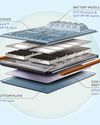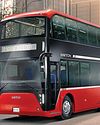
In the beginning, was the Licence Raj. When independent India adopted the Soviet-inspired model of socialism, it placed its bets on planning to allocate resources such as scarce foreign exchange. The government did not believe in being dependent on the outside world, and import substitution was encouraged. Businesses would have to make products with basically no reference point to global standards or developments. The government of the day was convinced that through central planning and control of resources, it would be able to lift millions of Indians out of dire poverty.
However, it needs to be said that India's first PM, Pandit Jawaharlal Nehru clearly art ulated the need for the industry when he that factories were the temples of modern India. The automotive sector, perhaps, was not on his mind. One image of the self-reliance that dominated the early years was that of the Bhakra Nangal dam. Understandably so, as India was an agricultural economy with millions dependent on it for their livelihoods.
With India's decision to clamp down on imports in order to save foreign exchange, the foreign auto sector brands had little choice but to exit. Among those who left were a clutch of companies that included names like Ford, Skoda, Studebaker, and Buick, to mention a few. Some of these names are familiar to us today, but in the early years of independence, these companies brought their completely built-up (CBU) cars into India via the import route and came via a docks near you. They were not manufactured here, there was no supplier community, and to afford a car, one had to be really very wealthy to buy one, and sadly the banks or financial lenders did not offer schemes as we see today. One only has to see a black and white picture of Bombay's Marine drive in the 1950s and 1960s to see how sparse the country's vehicle population was.
この記事は Autocar Professional の 15th August 2022 版に掲載されています。
7 日間の Magzter GOLD 無料トライアルを開始して、何千もの厳選されたプレミアム ストーリー、9,000 以上の雑誌や新聞にアクセスしてください。
すでに購読者です ? サインイン
この記事は Autocar Professional の 15th August 2022 版に掲載されています。
7 日間の Magzter GOLD 無料トライアルを開始して、何千もの厳選されたプレミアム ストーリー、9,000 以上の雑誌や新聞にアクセスしてください。
すでに購読者です? サインイン

Spain's Fersa Group invests in India-based Delux Bearings
Besides theRs100 croreinvestment, the Indian company gets access toadvanced technologies and bearings with arange of applications that willhelpinits global growth strategy, writes Manobhava Baruah.

Tata Autocomp to open compact dual-clutch transmission plant
Amidthe country’s growing need for personal mobility with easy manoeuvrability, comes the demand for vehicles with automatic transmission. Tata AutoCompisready tomovein writes Shruti Mishra.

Pankaj Munjal-backed Hero Motors raises equity from GEF Cap
The company willinvest Rs1,500 crore over thenextthree years andit expects 60 percent ofits turnover to come fromelectric vehicle parts. Itaims to becomea Global EV Solutions Company from India

New age thermoplastics for next-generation EV batteries
Saudi-based global materials major SABIChas developed cutting edgein fire-resistant polymers and flame-retardant materials that comply with various EV battery safety standards across the world.

Switch Mobility to meet growing e-bus demand with fresh capex
Oncourse for abillion-dollar business, the company is exploringa possibility of operating satellite factories across the country to serve different geographies, write ShahkarAbidi and Ketan Thakkar.

Kia India to invest Rs 2,000 crore in EVS, to introduce new e-RV in 2025
New investmentto drive R&D, infrastructure development and manufacturing capabilities. The company willlocally produce EVsin India with possibility of exports as well, writes Mayank Dhingra.

"The government has given enough time for indigenisation but the industry has not taken it seriously"
Amitabh Saran, Founder and CEO, Altigreen, shares his views on problems inthe EV industry and battery localisation solutions with Amit Vijay M.

TATA MOTORS SEES ONE INTWO CARS SOLDAS EVS BY 2030
The company aims to offer wider choices withnew EVs that may straddle a pricebracket of Rs20to 40lakhinthe coming years, writes Ketan Thakkar.

MG Motor India in expansion drive, to invest $100 million
The investment willbe usedtoramp up existing production capacity from1.2to1.4-15lakh units per annum atthe automaker's Halol plantin Gujarat, writes Ketan Thakkar.

"Technology and its multiplier effect are driving business transformations and customer experiences"
Technical Centre India is one of Continental’s largest research and development centres in the world, andasa Centre of Competence’ it also develops customised products for the BRIC countries.